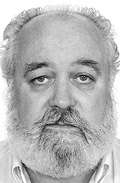
El secreto de la bomba atómica española
la intrahistoria de la Junta de Energía Nuclear y el Proyecto Islero
Gámez Balcázar, Francisco
Few activities linked to power are as controversial as nuclear energy. This book provides verified data on one of the most ambitious research programs that have been carried out in Spain. In 1948, with a country still recovering from the Civil War, a group of scientists laid the foundations for nuclear research and fought to achieve an energy that offered enormous advantages to economic and technological development and independence from Spain. But the road was full of intrigue. In the early 1960s, the President of the French Republic, De Gaulle, and Francisco Franco signed an agreement for Spain to manufacture nuclear weapons, with Paris authorizing the installation in our country of a reactor not subject to the control of the International Atomic Energy Agency. (IAEA) or the United States Atomic Energy Agency. The deal set off alarm bells in Washington. Presidents Nixon, Ford, Carter and Reagan launched a brutal campaign against the Spanish nuclear program. Washington's anger lasted until February 23, 1981, when senior officials in the Ministry of Industry accepted the restrictions imposed by the IAEA and the dismantling of research centers. The next day Tejero's guards leave Congress and surrender to the authorities. The coup d'état had concluded, the nuclear program developed by the JEN and the High General Staff as well. We know how it ended; but when and how did it start? The history of Spanish nuclear energy began in 1948, when a group of scientists met in a secret Navy facility to form an organization focused on three activities: study of the exploitation of uranium deposits, development of techniques related to the extraction of uranium and personnel training. A front company was created through a reserved order that expanded its activities in the areas of Geology, Mining, Physics and Metallurgy. At the end of the 1970s, it was planned to carry out the first nuclear test in a place in the Spanish Western Sahara, but a timely Green March prevented it. What came after is a silenced story that must be known.
- Author
-
Gámez Balcázar, Francisco
- Subject
-
History
> History of Spain
- EAN
-
9788418578403
- ISBN
-
978-84-18578-40-3
- Edition
- 1
- Publisher
-
Almuzara
- Pages
- 464
- High
- 24.0 cm
- Weight
- 15.0 cm
- Release date
- 25-10-2022
- Language
- Spanish
- Series
- Historia



